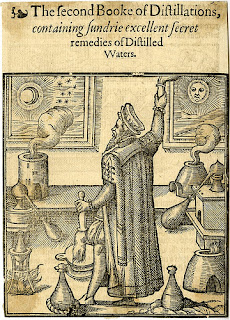Parenting a child with extraordinary abilities or sensitivities can be a lonely experience. Despite the feelings of joy and laughter that come with raising a child and the pleasures we derive from seeing them do things that take our breath away, many parents still find themselves uneasy and perhaps apprehensive to think of their child as "needing" something beyond what they believe they can offer.
What do you do when you have a child that does not want to go into the field of educating others, litigating disputes, or mending broken bones? What then? Do we label them as "special needs" or "maladjusted" just because their interests lie elsewhere? What is it that's stopping us from allowing children to become uniquely qualified in an area of their own choosing?
In a world fraught with dangers, it's easy to panic, and for the kids' "own good," put them back into the box.
There are plenty of ways to survive in the world without knowing the details of every 17th century battle that our forefathers fought. It's not that we can't learn valuable lessons from these battles, but the question of whether or not this information is timely or relevant should be considered more important that simply memorizing arbitrary information for a test (information that will be forgotten within 72 hours).
We give kids the freedom to play games and then close them off from the world for the majority of their youth in poorly lit, poorly ventilated rooms forcing them to focus their attention on learning the details of cellular biology or arbitrary standards from a bygone era.
Historically, the majority of these intellectual pursuits were the activities of 19th century (adult) philosophers. They were not intended for the musings of children. Nor are they relevant for 21st century children. So, why do we still deem it relevant?
When our present educational model was developed few families could afford books. To compensate for a lack of resources, children attended public school in order to learn how to write their names and to learn about new discoveries and ways of thinking that were relevant to advancing the industrialized world. At this time in history, the public educational model was relevant.
Today, our world is already industrialized. What's needed is a living model that utilizes our present-day technological tools and advanced mindset in a way that allows for growth and change. We are modern day gatherers of knowledge, our key focus should be on determining the validity and relativity of the knowledge we encounter about ourselves and today's world.
Having one or two hours of access to the Internet at school to focus on ancient knowledge or antiquated learning techniques is not the same thing as utilizing advanced technological tools to aid us in making new discoveries or in exploring what we can create from the newest tools and programs available to us.
I'm not suggesting anarchy or doing away with the systems that protect citizens, but let's admit it, many of the citizens who act out are acting out because their needs are not being met.
While some children actually excel in a closed-network environment, it's usually for other reasons (pleasing parents or teachers, fear of punishment, fear of failure).
Despite the differences we have in the world, it's important to make a little more room for people to discover it on their own terms.







.jpeg)










No comments:
Post a Comment